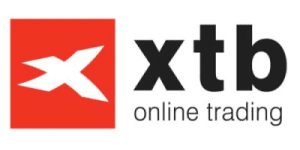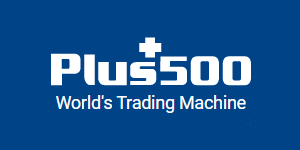In this article, we checked out some of the most popular Forex brokers available to Singapore traders. We looked at their trading platform, commission and spreads, and other aspects of each broker. Take a look at the trading platforms in Singapore, where we analyze brokers and trading platforms for Singapore investors.
If you’re still unsure which broker to choose, we put together a useful FAQ and information resource at the end.
Table of Contents
List of the Top Rated Forex Brokers in Singapore 2023
We compared some of the top rated forex brokers in Singapore regarding customer service, research and educational tools, and commissions.
This is our selection for the best forex trading platforms in Singapore:
- Pepperstone – Best Overall
- XTB – Great Forex Broker Singapore
- Plus500 – Great CFD Forex Broker in Singapore
- CMC Markets – Fast Execution Forex Trading Platform Singapore
- HotForex – Good Forex Broker Singapore for Analysis
- HYCM – Best MetaTrader Forex Broker Singapore
- Saxo Markets – Best Forex Trading Platform Singapore for High Net Worth
- Oanda – Solid Forex Broker in Singapore
- FX Primus
- IG
- City Index
1. Pepperstone
Pepperstone is our top pick as the best forex broker for Singapore clients. Peppestone is a reputable online forex broker regulated by top-tier authorities like the FCA and ASIC.
Pepperstone offers over 60 currency pairs. They have a wide variety of CFD instruments to Singapore traders.

Pepperstone won the Public Finance International award as our top rated forex broker with low spreads. They offer competitive low trading costs and Non-trading fees.
Pepperstone offers a copy trading platform. This is a useful trading strategy for newer traders looking to learn from more experienced users.
| Pros | Cons |
|---|---|
| Low Spreads and Commissions | Lacking more advanced research tools |
| Low inactivity fees | |
| Free deposits and withdrawals | |
| Investor Protection |
| Trading Platform | Pepperstone |
|---|---|
| Founded | 2010 |
| Regulation | ASIC, CySEC, FCA, SCB, DFSA, BaFin, CMA |
| Offering Of Investments | Forex, Shares, Indices, Commodities, and Cryptocurrencies |
| Minimum Deposit | $0 |
| Demo Account | Yes |
| Withdrawal Fee | $5 |
| Inactivity Fee | $0 |
| Deposit Methods | Credit/debit cards, Bank/Wire Transfer, PayPal, Neteller, Skrill, UnionPay, BPay, PoLi |
74-89 % of retail investor accounts lose money when trading CFDs
XTB
XTB is a global Forex and CFD broker with offices in Warsaw and London. They are regulated by both the FCA and CySEC, as well as some lower-tier authorities.
XTB offers an impressive 49 forex currency pairs. Their Forex trading fees are low, and XTB has free withdrawals over $100.
XTB charges inactivity fees for retail CFD accounts after a year of inactivity.
Their commission structure is competitive with any other retail broker. The minimum deposit is $0 to open a forex trading account.
| Pros | Cons |
|---|---|
| Low Forex fees | Inactivity fees |
| Made specifically for CFD and Forex trading | 5 base currencies are accepted |
| Excellent educational tools |
| Trading Platform | XTB |
|---|---|
| Founded | 2002 |
| Regulation | FCA, CySEC, Financial Services Commission in Belize |
| Offering Of Investments | Forex, Indices, Commodities, Stock CFDs, ETF CFDs, Crypto |
| Minimum Deposit | $0 |
| Demo Account | Yes |
| Withdrawal Fee | 20 USD for withdrawals under 100 USD |
| Inactivity Fee | $10 monthly after 12 months |
| Deposit Methods | Bank Transfers, Credit and Debit Cards, Skrill |
Plus500
Plus500 is one of the most strictly regulated brokers on the market. They started as an online retail broker in Israel in 2008 and have grown globally to be regulated in 9 different regions.
Plus500 have some of the most competitive fees and rates of any broker globally. They have no charge for account deposits so all of your money can go to trading. However, their minimum deposit is quite high. Read Full Plus500 Review
| Pros | Cons |
|---|---|
| Simple trading app | Limited research tools |
| Responsive customer service | Limited financial instruments |
| Easy to open an account |
| Trading Platform | Plus500 |
|---|---|
| Founded | 2008 |
| Regulation | FCA, CySec, MAS, ASIC, FSA, FMA |
| Offering Of Investments | Shares, Forex, Commodities, Indices, Crypto, Options, ETFs |
| Minimum Deposit | $100 |
| Demo Account | Yes |
| Withdrawal Fee | $0 |
| Inactivity Fee | Yes |
| Deposit Methods | PayPal, Skrill, Credit Card, Debit Card, Bank Transfer |
HYCM
Hynep Market (HYCM), was launched in 2007, focusing specifically on bringing trading to markets in Asia. Over the years, they have been awarded several awards for customer service and broker support.
HYCM has all major currency pairs and over 70 currency pairs in total. Traders using HYCM can trade Forex and CFDs but cannot trade cryptocurrency, stocks, or commodities.
HYCM offers a range of services to traders of all kinds, both novice and expert. There are thousands of signal providers that traders can mirror with HYCM’s social trading platform.
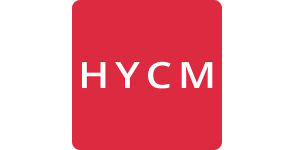
| Pros | Cons |
|---|---|
| They host seminars and webinars on trading | Limited charting capabilities |
| Excellent customer support | Platform setup |
| Low Forex and CFD fees |
HotForex
HotForex is a European Forex broker, launched in 2010. They are based in Cyprus, they are regulated by CySEC.
HotForex offers competitive fees on 47 different currency pairs. Their website advertises that users have access to stocks and commodities, but users should be aware that these are only available through highly volatile CFDs.
They have a variety of accounts, including commission free and spread free options. There is also a “Zero” account that charges a proportional rate of each trade but has zero spread.
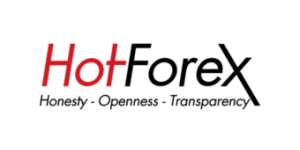
| Pros | Cons |
|---|---|
| Plenty of CFD and Forex options to choose from | No Cryptocurrency |
| Platform allows for social trading | Not a publicly listed broker |
| Low fee structure |
CMC Markets
A long-standing CFD and Forex broker, CMC Markets is based in the UK and regulated by top-tier authorities like the FCA and MAS under CMC Markets Singapore Pte. They are listed on the London Stock Exchange.
They are committed to customer service. Their customer support is available 24/7, something most brokers cannot compete with.
They offer over 300 currency pairs to Forex traders which makes them stand out over other Forex brokers. They have a range of CFDs outside Forex.
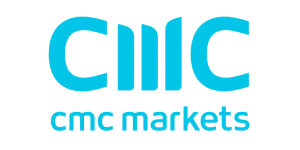
| Pros | Cons |
|---|---|
| Industry-leading research tools | High Forex commissions and spreads |
| Regulated globally | Short trading is restricted |
| Award-winning customer support |
Saxo Markets
Saxo Markets is a Danish retail broker, a subsidiary of Saxo Bank. It is regulated by various European agencies and has been in operation since 1992.
They use a proprietary trading platform called SaxoTraderPro, and a web-based platform called SaxoTraderGo.
They offer a wide range of Forex pairs as well as a selection of other trading instruments such as stocks, bonds, ETFs, and futures.
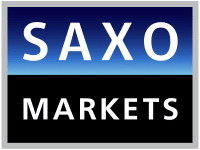
| Pros | Cons |
|---|---|
| Massive range of tradable assets | No MetaTrader platform support |
| Stop-loss and other safeguards are encouraged | Complicated fee structure |
| Excellent user interface |
Oanda
Oanda is a broker that trades entirely in CFDs and Forex. They are regulated by top tier regulators including MAS under OANDA Asia Pacific Pte. It is a private company and is not required to release its financial statements.
It offers a range of over 70 different currency pairs for Forex trading, as well as a selection of CFDs based on underlying assets.
They offer tight spreads on Forex trading and further sweeten the deal by providing one free deposit and withdrawal from your trading account each month.
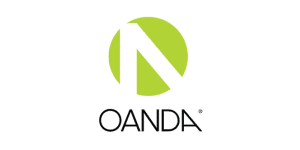
| Pros | Cons |
|---|---|
| Great, user-friendly trading platform | Only Forex and CFD options available |
| Fundamental research tools | Customer support is lacking |
| Choice of proprietary or MT4 trading platforms |
FXPrimus
FXPrimus is the brokerage arm of Primus Global Ltd. and began operation in 2009. They are registered in Cyprus and are regulated by CySEC.
Traders have access to three different account types, depending on their minimum deposit amount. Higher tier trading account get benefits such as telephonic market updates or consultations with market specialists.
FXPrimus has 40 currency pairs available to trade, as well as a selection of equities and stocks.
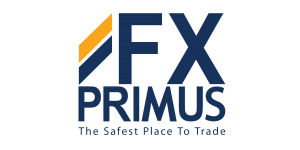
| Pros | Cons |
|---|---|
| Enhanced MT4 trading platform | Customer support |
| Cybersecurity | High minimum deposit |
| Choice of proprietary or MT4 trading platforms |
IG
IG is a MAS regulated forex broker under IG Asia Pte Ltd (Co. Reg. No. 200510021K). They hold many of the world's top licenses. IG was founded in 1974 and is a part of the FTSE 250 Index under the IG group listed on the London Stock Today, IG is one of the largest Forex brokers in the world. They are considered highly reliable.
Trading with IG gives access to both MT4 and IG’s proprietary trading platform. Their design has won them several awards and is one of the most intuitive platforms we’ve used. It is highly customizable and flexible.
They have over 200 currency pairs open for trading and a wide variety of other tradable instruments.

| Pros | Cons |
|---|---|
| Large range of Forex and CFD options | Charting capabilities |
| Long history of reliability | Account opening is slow |
| Regularly discloses financial statements |
City Index
City Index is a global Forex and CFD broker that launched in 1983 and is regulated by high-level authorities all over the world. They are a publicly listed subsidiary of GAIN Capital.
Their Forex offering is somewhat narrow considering they are such a large and popular broker, offering just over 80 currency pairs. An advantage is that traders have access to cryptocurrency trading.
City Index hosts frequent webinars and has lots of platform tutorials to make trading easier.
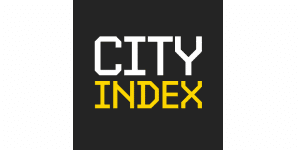
| Pros | Cons |
|---|---|
| Varied research tools | Limited Forex options |
| Lots of educational resources | High minimum deposit |
| Easy account opening |
How do Singapore Forex Trading Platforms Compare?
Below we compared the top forex brokers in Singapore – This will give you a better understanding of how these forex trading platforms compare.
| Pepperstone | XTB | Plus 500 | CMC Markets | |
|---|---|---|---|---|
| Our Score: | 4.9/5 | 4.7/5 | 4.8/5 | 4.7/5 |
| Founded: | 2007 | 2008 | 2008 | 1989 |
| Regulation: | FCA, CySEC, ASIC, FSAS | Netherlands Authority for the Financial Markets (AFM), FCA (Financial Conduct Authority), BaFin | FCA, CySec, MAS, ASIC, FSA, FMA | FCA, BaFin, ASIC, IIROC, FMA, MAS |
| Headquarters: | Tel Aviv-Yafo, Israel | Amsterdam, Netherlands | Israel | London, United Kingdom |
| EU Clients Allowed: | Yes | Yes | Yes | Yes |
| Available in Singapore: | Yes | Yes | Yes | Yes |
| Minimum Deposit: | $100 | $0 | $100 | $0 |
| Deposit Methods: | PayPal, Skrill, Neteller, Credit Card, Debit Card, Rapid Transfer, iDEAL, Klarna / Sofort Banking, Bank Transfer, Online Banking – Trustly, POLi | Bank Transfer | PayPal, Skrill, Credit Card, Debit Card, Bank Transfer | Bank Transfers, Credit and Debit Cards, PayPal |
| Min. Trade: | $10 (Stocks, ETFs, Crypto) $1000 on Leverage (Currencies, Commodities, Indices) | $0 | Varies | Varies |
What is the Best Forex Trading App in Singapore?
The best forex trading app in Singapore is Avatrade. AvaTrade offers a wide variety of tools, research, and useful trading platforms. They are a reputable broker regulated by top-tier authorities worldwide.
Every trader’s needs are different, and AvaTrade is best equipped to cater to the widest variety of forex traders. They have an excellent demo account that traders can use to test out their trading strategies.
Their trading platform is easy to use and well-equipped for all levels of traders. A two-step authentication login means that the platform is secure.
AvaTrade Best Forex Trading App Singapore
- Won Multiple Awards
- Founded in 2006
- Demo Account
- Well Regulated
- MT4, MT5, AvatraderGo, AvaProtect, Avasocial
- Copy Trading Capabilities
- Professional Support
How to pick a Forex Broker in Singapore?
Before picking a Singapore Forex broker, make sure to consider the following criteria:
Fees & Commissions
For every trade brokers will charge their users a proportional fee. Platforms charge very little for the commission, but they take a proportional cut of each trade.
Most of these platforms make money from active traders. They charge fees for users who do not trade actively. These are called inactivity fees and are used by most brokers.
Regulation
You should always look for regulated forex brokers. All leading forex brokers are authorized by top-tier authorities. Ideally, the forex broker you pick will be regulated by the Monetary Authority of Singapore (MAS). Choosing a reputable and regulated forex broker is essential in avoiding forex scams.
Singapore clients can choose to trade with brokers not regulated by the MAS, but they risk not being protected if that broker turns out to be a scam.
MAS has set guidelines for the maximum leverage amounts and rules regarding segregated client funds.
How to verify MAS regulation?
To verify whether MAS regulates a forex broker, you first need to find the register number in the disclosure text of the broker. The number is at the bottom of the broker's Singapore homepage. Once you find the registration number, validate it on the official MAS website.
MAS serves as Singapore's central bank and financial regulator.
Singapore Dollar (SGD) Support
The Singapore Dollar or SGD, is the official national currency. One Singapore dollar is made up of 100 cents and is distinguished by the letter S from the other dollar-based FX currencies. The name “Sing” is also used. It is an added bonus if your broker supports SGD to avoid a currency conversion fee.
Education
Brokers often have educational tools on their platforms. These can vary from slide shows on market indicators to webinars from experts.
Some brokers have resources that are useful to traders at all levels. Others cater specifically to novice users.
If you’re already experienced with retail trading, try and find a broker that has educational tools that will be useful to you.
Risks of Forex Trading in Singapore
Like all forms of trading, Forex carries with it some risk. These come in all forms but could all result in the trader losing money despite their hard work.
Leverage
Leverage is controversial in trading circles. It allows brokers to increase the trader’s initial margin to secure a larger position than they would otherwise be able to afford.
Many traders appreciate using leverage as it can increase their buying power from relatively small capital investments, but it can also increase losses. Using leverage can result in losing more money than your initial margin.
Volatility
Traders rely on somewhat volatile instruments for their positions to increase or decrease in value.
However, this volatility can also be dangerous. Traders could take a “sure-fire” position expecting it to head in a particular direction, only for market conditions to cause a sudden spike.
Anyone familiar with the recent GameStop debacle will understand how volatile markets can lead to massive losses.
High-risk
Many traders are attracted to Forex trading because of its short-term, high-risk, high-reward nature.
Forex positions can be held long-term, but it is also common for day-traders to use strategies like scalping.
Like any short-term, high-reward strategy, there is a considerable amount of risk. Because of the volatility of Forex markets, traders may take on significant losses over a short amount of time.
How Much Do I Need to Start Forex Trading in Singapore?
Every broker will require a different minimum deposit to open an account. Some brokers do not require any deposit to open an account. But traders will still need some capital to open a position. Traders can use leverage to increase the position they can take. The recommended amount needed to start trading is around S$250.
When does the Forex Market Open In Singapore?
The Singapore Forex market is open between 9 am and 5 pm, Monday to Friday.
Read next:
